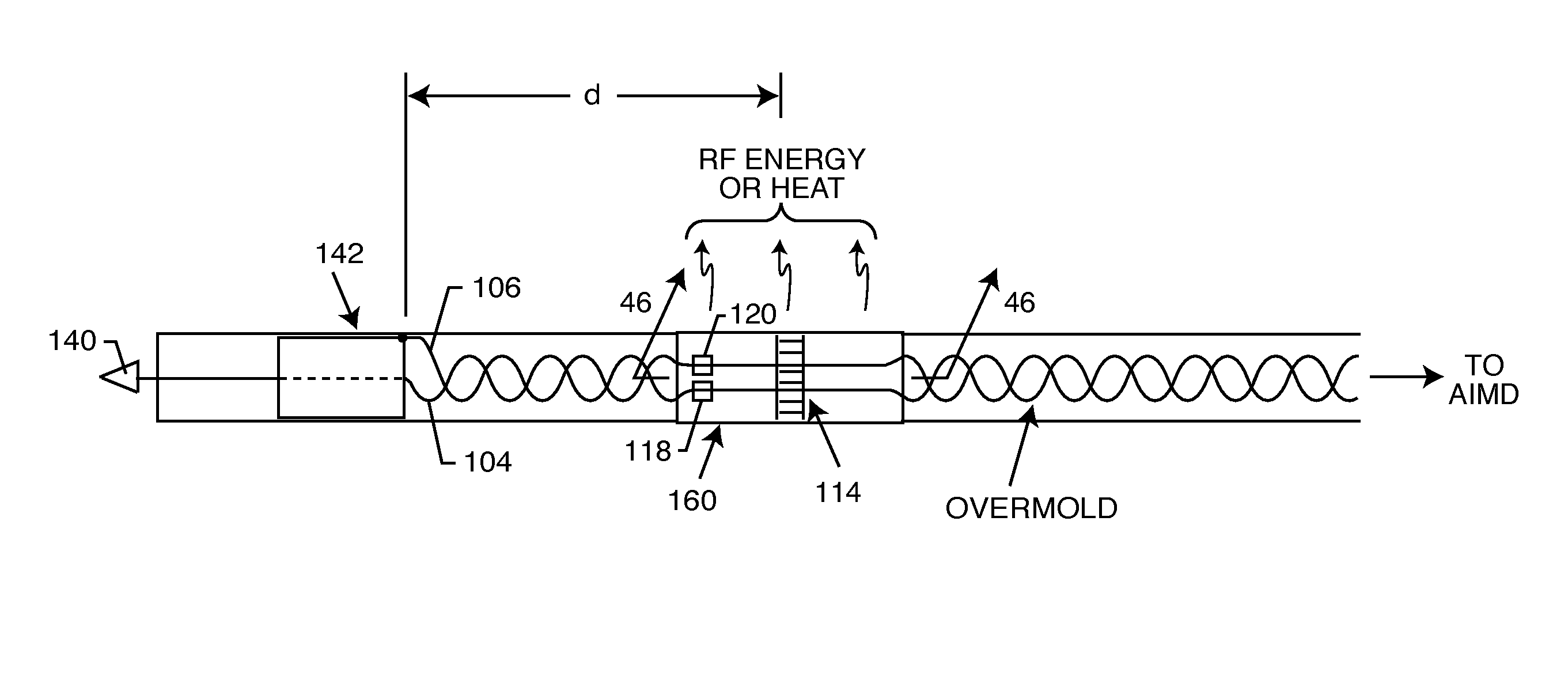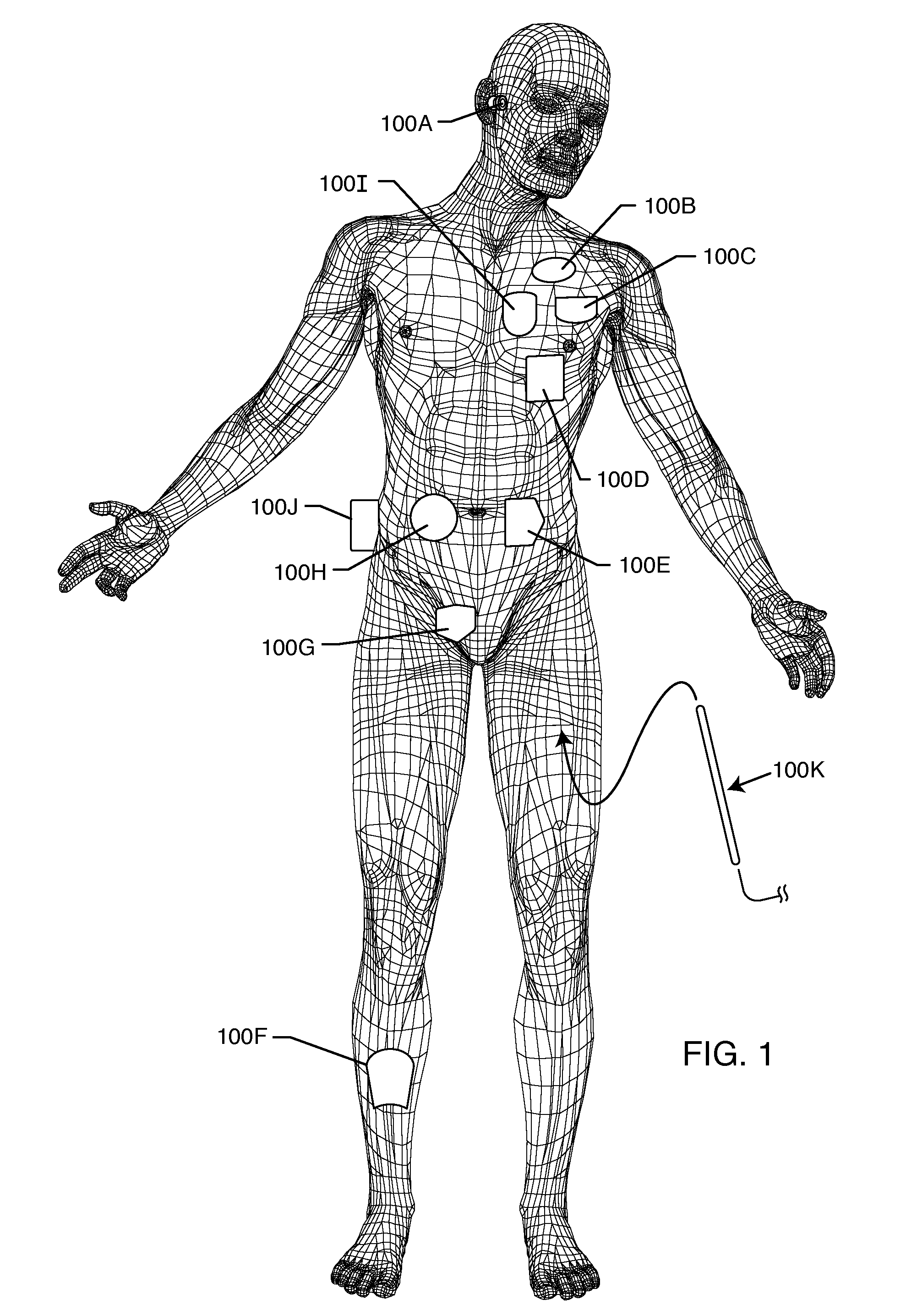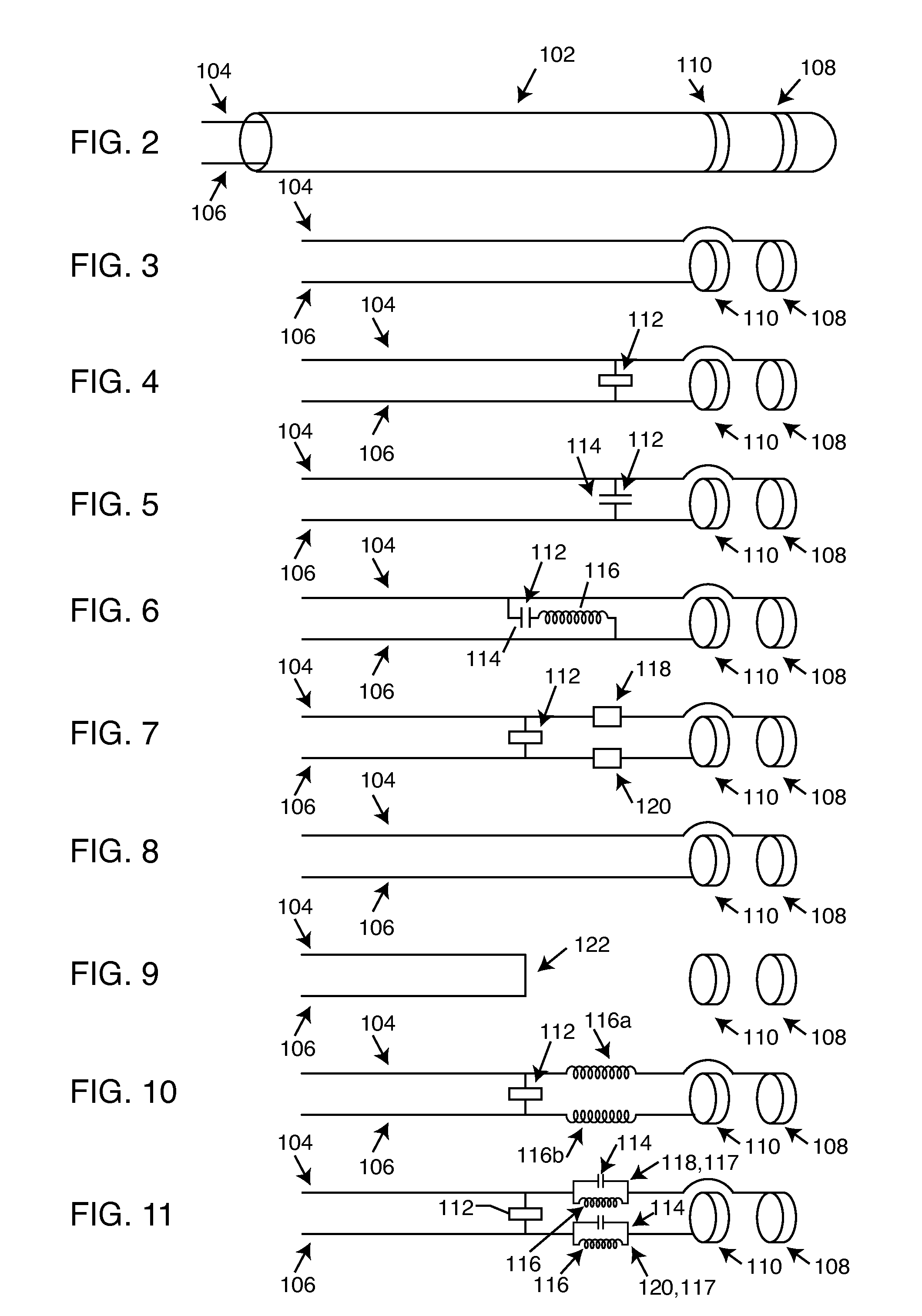Frequency selective passive component networks for active implantable medical devices utilizing an energy dissipating surface
a passive component network and active implantable medical device technology, applied in the field of energy induced into implanted leads, can solve the problems of large compatibility between cardiac pacemakers, implantable defibrillators and other types of active implantable medical devices with magnetic resonance imaging (mri) and other types of hospital diagnostic equipment, and the latent problems of cardiac pacemakers. , the sar level is not entirely predictiv
- Summary
- Abstract
- Description
- Claims
- Application Information
AI Technical Summary
Benefits of technology
Problems solved by technology
Method used
Image
Examples
Embodiment Construction
[0124]FIG. 1 illustrates various types of active implantable medical devices referred to generally by the reference numeral 100 that are currently in use. FIG. 1 is a wire formed diagram of a generic human body showing a number of exemplary implanted medical devices. 100A is a family of implantable hearing devices which can include the group of cochlear implants, piezoelectric sound bridge transducers and the like. 100B includes an entire variety of neurostimulators and brain stimulators. Neurostimulators are used to stimulate the Vagus nerve, for example, to treat epilepsy, obesity and depression. Brain stimulators are similar to a pacemaker-like device and include electrodes implanted deep into the brain for sensing the onset of the seizure and also providing electrical stimulation to brain tissue to prevent the seizure from actually happening. 100C shows a cardiac pacemaker which is well-known in the art. 100D includes the family of left ventricular assist devices (LVAD's), and a...
PUM
 Login to View More
Login to View More Abstract
Description
Claims
Application Information
 Login to View More
Login to View More - R&D
- Intellectual Property
- Life Sciences
- Materials
- Tech Scout
- Unparalleled Data Quality
- Higher Quality Content
- 60% Fewer Hallucinations
Browse by: Latest US Patents, China's latest patents, Technical Efficacy Thesaurus, Application Domain, Technology Topic, Popular Technical Reports.
© 2025 PatSnap. All rights reserved.Legal|Privacy policy|Modern Slavery Act Transparency Statement|Sitemap|About US| Contact US: help@patsnap.com



